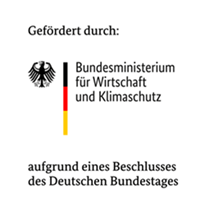
News
Project ModuLA: Information from planning to operation | 06.02.2019
Linking all the Information from the planning and operation phases requires a continous and consistent information model for the entire life cycle. Project ModuLA started end of 2018 to work out the specifications for this integrated approach.
weiterlesen
ENPRO once more at the PAAT meeting | 10.11.2015
This year presented the initiative ENPRO a large proportion of the scientific program of the Annual Meeting of ProcessNet Section "Process, Apartus- and Plant Engineering (PAAT)" on 16 and 17 November 2015 Bruchsal. Prof. Kockmann gave on Tuesday, 11/17/2015, an overview of the ENPRO idea and subsequently showed the individual projects their current results.
weiterlesen
1st ENPRO day was a great success | 29.06.2015
On the 24.06.2015, over 50 experts from the ENPRO initiative met at DECHEMA in Frankfurt am Main, Germany, to discuss the latest results. A World Café was held during this meeting, debating the current developments and developing ideas for the further progress.
weiterlesen
Separation processes with the use of efficient and intelligent apparatus
Energy efficiency of separation processes is a topic of special interest in the chemical industry and current research projects. A promising approach to increase energy efficiency is to change the operation mode of the separation processes from batch to continuous. Nowadays, many chemical products like pharmaceutical, fine and special chemicals are still produced, separated, and purified in batch mode. A change to continuous and modular production and separation has the high potential to reduce energy and save time.
Within the project, different crystallizers and extraction columns will be investigated as well as a characterization of their operating windows and a testing of different substance systems. Additionally, the automation via smart sensors and data processing should be implemented to enable an efficient and intelligent interconnection and modification of the modules.
The development of innovative separation processes with the use of efficient and intelligent equipment is only possible through combined knowledge of the product and advancement of the installed devices as well as their sensors with scientific approach.
